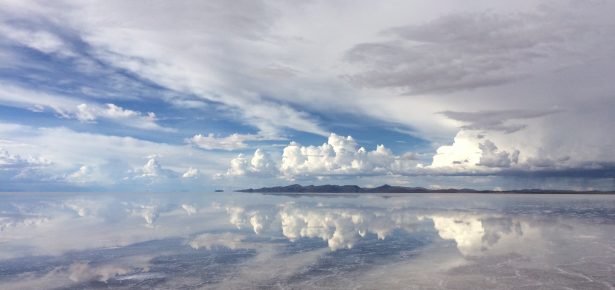
“I can’t breathe” is the phrase that will define 2020. It captures the fear of the coronavirus that attacks the respiratory system of those who contract it and they were the last words of George Floyd before he died with a police officer’s knee on his neck. They capture the sentiments that drove millions to isolate themselves and are the words that pulled hundreds of thousands into the streets to protest systemic racism.
These protests are remarkable not only because of their scale, the largest civil rights protests in a generation, and their scope, spreading from Minneapolis to across the world, but also because they are occurring under the shadow of a global pandemic that has killed nearly half a million people.
This has led some to criticise those engaging in mass protests as failing in their duty to remain in lockdown to prevent the spread of COVID-19. This line of argument fails to appreciate that acts of resistance often carry risk and downplays the injustice of systemic racism.
The Right of Resistance
The right to resist injustice is a fundamental human right. A right must impose an obligation on another agent. If this agent has the ability to ignore rights-based claims with impunity, then no right existed. It was merely a privilege to be dispensed (or not) on a whim. Rights require remedies that can bring compliance when they are violated. Resistance is the ultimate remedy. If this were not the case, human rights would merely be gilded rhetoric; the emperor of ethics parading without so much as a fig leaf.
COVID-19 and Black Lives in America
The coronavirus has laid bare the racial injustice underpinning American society. The pandemic has devastated the economy. Prior to the recession there was a significant pay gap between black and white co-workers. Less pay for the same work and greater precarity in employment helps explain why more than one in three black families have zero or negative wealth. The resultant rise in unemployment due to the pandemic has affected black Americans more than their white compatriots, as it is far harder to deal with a crisis like the pandemic without household wealth to help weather the storm.
The public-health response to the pandemic has also exposed underlying racial inequalities. Racism has shaped the environment of non-white communities: black families often live in areas with worse air and water quality, such as Flint, Michigan. Toxic environments have undermined health in the black community and have left it more vulnerable to the pandemic. The number of black people dying from COVID-19 is at a rate nearly three times higher than white Americans; despite making up 11% of the US population, they account for 23% of COVID-19 deaths.
The killing of George Floyd, a man who had recently lost his job, after he was detained by the police for trying to pass a fake $20 bill caused these historic protests because it encapsulated the systemic injustice faced on a daily basis by black Americans; too many black lives are marked by precarity, poverty, disease, and the arbitrary brutality of a criminal justice system whose agents believe that because they wear a badge they are above the law.
The immediate consequence of the killing of George Floyd was mass protests in Minneapolis. The protests spread then across America and then the world. Hundreds of thousands have taken to the streets of New York, Los Angles, London, and Berlin to protest against racism. These protests would be remarkable in ordinary times, but the pandemic added an additional dimension.
The people in many of these states have been instructed to remain in their homes except for urgent tasks. The mass noncompliance with these instructions raised the risk of the virus spreading further through the population. Is this justifiable?
Risk and Resistance
Exercising the right of resistance is inherently risky. If ordinary modes of expressing political disagreement or redressing injustice were available there would be no need for resistance at all. The fight against white supremacy in the United States has always been fraught with risk: Martin Luther King Jr. faced baton-wielding cops, fire hoses, and police dogs at Selma; fugitive slaves and underground railroad conductors, like Harriet Tubman, braved slave catchers and brutal punishment. Those who benefit from the oppression of others rarely relinquish their privilege without a struggle.
What makes coronavirus different from these other risks? The only meaningful difference seems to be that while dissidents in the past have exposed themselves to risk, those exposing themselves to coronavirus also put their dependents and innocent bystanders at risk.
This, however, does not withstand scrutiny. Resistance to white supremacy often sparked indiscriminate violence against the black community. The Tulsa Massacre that occurred between 31 May and 1 June 1921 was sparked by a confrontation between a white mob and black protestors, who feared that Dick Rowland, a black youth accused of assaulting a white woman, was going to be lynched. Spurred on by inflammatory reporting of the confrontation and a sense of grievance at the prosperity of ‘Black Wall Street’, white rioters burned and murdered their way through the Greenwood district. They destroyed hundreds of home and business and killed upwards of 300 people. The harm caused is deplorable, but that does not mean that black Tulsans should have stayed at home and let an innocent boy get lynched.
Resistance carries risks. This does not mean it is unjustifiable, only that risk needs to be mitigated. In the case of COVID-19 precautions ought to be taken: masks worn, social distancing observed when possible, and self-isolation imposed after the fact. If one has responsibilities to vulnerable people, this is a reasonable excuse not to participate.
Those who criticise these protests for spreading coronavirus have an inherent status quo bias. It underestimates or ignores the continuous damage being done by systemic racism. It speaks volumes that people are willing to risk exposure to this disease in order to say: ‘Black Lives Matter’.
Latest Comments
Have your say!